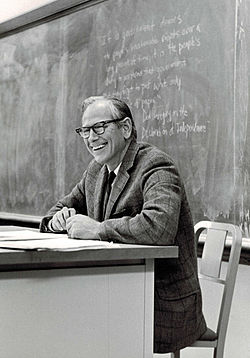Robert A. Dahl Quote
In short, just as happens in American presidential elections, majoritarianism often fails to produce a government that reflects the choices of a majority of voters. Second, the distortion between seats and votes in majoritarian systems sometimes creates a majority of seats for a party that has failed to win even a plurality of votes and thus has actually come in second. In these cases, the minority party among voters becomes the majority party in the legislature. Third, even in majoritarian systems, in practice, purely two-party politics is a rare phenomenon and often not robust when it appears. That is, a third party—like the Liberal Democrats in Britain—may prevent either of the two major parties from gaining a majority of votes, even though one of them may gain a majority of seats.
In short, just as happens in American presidential elections, majoritarianism often fails to produce a government that reflects the choices of a majority of voters. Second, the distortion between seats and votes in majoritarian systems sometimes creates a majority of seats for a party that has failed to win even a plurality of votes and thus has actually come in second. In these cases, the minority party among voters becomes the majority party in the legislature. Third, even in majoritarian systems, in practice, purely two-party politics is a rare phenomenon and often not robust when it appears. That is, a third party—like the Liberal Democrats in Britain—may prevent either of the two major parties from gaining a majority of votes, even though one of them may gain a majority of seats.
Related Quotes
About Robert A. Dahl
He established the pluralist theory of democracy—in which political outcomes are enacted through competitive, if unequal, interest groups—and introduced "polyarchy" as a descriptor of actual democratic governance. An originator of "empirical theory" and known for advancing behavioralist characterizations of political power, Dahl's research focused on the nature of decision making in actual institutions, such as American cities. He is the most important scholar associated with the pluralist approach to describing and understanding both city and national power structures.
In addition to his work on the descriptive theory of democracy, he was long occupied with the formulation of the constituent elements of democracy considered as a theoretical but realizable ideal. By virtue of the cogency, clarity, and veracity of his portrayal of some of the key characteristics of realizable-ideal democracy, as well as his descriptive analysis of the dynamics of modern pluralist-democracy, he is considered one of the greatest theorists of democracy in history.
